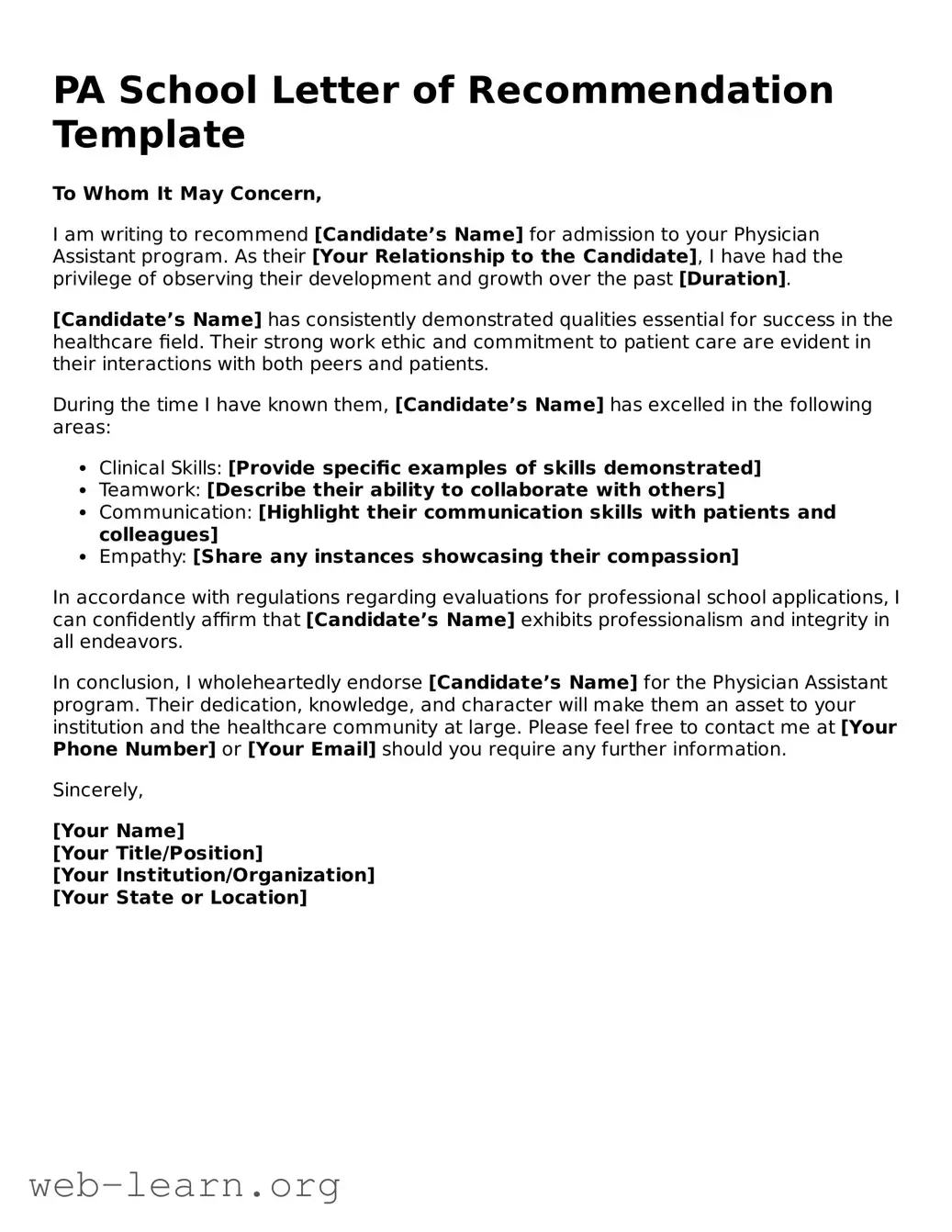PA School Letter of Recommendation Template
To Whom It May Concern,
I am writing to recommend [Candidate’s Name] for admission to your Physician Assistant program. As their [Your Relationship to the Candidate], I have had the privilege of observing their development and growth over the past [Duration].
[Candidate’s Name] has consistently demonstrated qualities essential for success in the healthcare field. Their strong work ethic and commitment to patient care are evident in their interactions with both peers and patients.
During the time I have known them, [Candidate’s Name] has excelled in the following areas:
- Clinical Skills: [Provide specific examples of skills demonstrated]
- Teamwork: [Describe their ability to collaborate with others]
- Communication: [Highlight their communication skills with patients and colleagues]
- Empathy: [Share any instances showcasing their compassion]
In accordance with regulations regarding evaluations for professional school applications, I can confidently affirm that [Candidate’s Name] exhibits professionalism and integrity in all endeavors.
In conclusion, I wholeheartedly endorse [Candidate’s Name] for the Physician Assistant program. Their dedication, knowledge, and character will make them an asset to your institution and the healthcare community at large. Please feel free to contact me at [Your Phone Number] or [Your Email] should you require any further information.
Sincerely,
[Your Name]
[Your Title/Position]
[Your Institution/Organization]
[Your State or Location]
